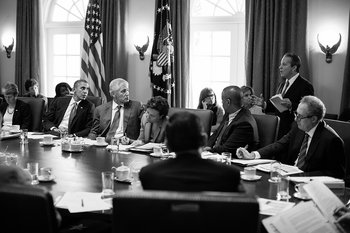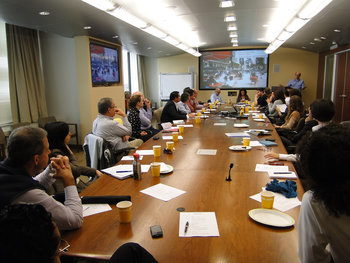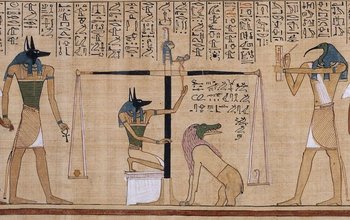
Legitimate Authority
Authority that is generally recognized by both rulers and ruled. For example, a society with a government based on long standing legal traditions that is recognized as an authority by the vast majority of people in the society.Coercive Authority
Authority based on overwhelming power such as the military and police powers of a state. This can be considered formal because it often widely recognized and is clearly enforceable.Popular Sovereignty
Authority based on the consent of a people. This is typically based on a system of voting for elected representatives. A popular revolution could also claim legitimacy based on the consent of the people.Traditional Authority
Authority based on tradition such as the traditional rules of government adopted by a society.Sovereignty
The right to rule a nation without interference by other nations or international organizations. This is typically based on popular sovereignty, traditional authority or both.Legal-Rational
Laws, rules, regulations, policies, procedures, and processes that create authority structures based on the authority of a power such as a government. For example, a government that grants limited authority to the administrators of a government department that allows the department to fulfill its objectives.Positional Authority
An employee or representative of an organization who is given limited authority based on their role. For example, a manager who is given control of resources such as IT systems and authority to direct a team.Individual Sovereignty
The natural rights and freedoms of a person. These are rooted in the principle of self-ownership whereby an individual is free to direct and control their own life.| Overview: Formal Authority | ||
Type | ||
Definition | A right to direct and control that is generally recognized and highly enforceable. | |
Related Concepts | ||





























